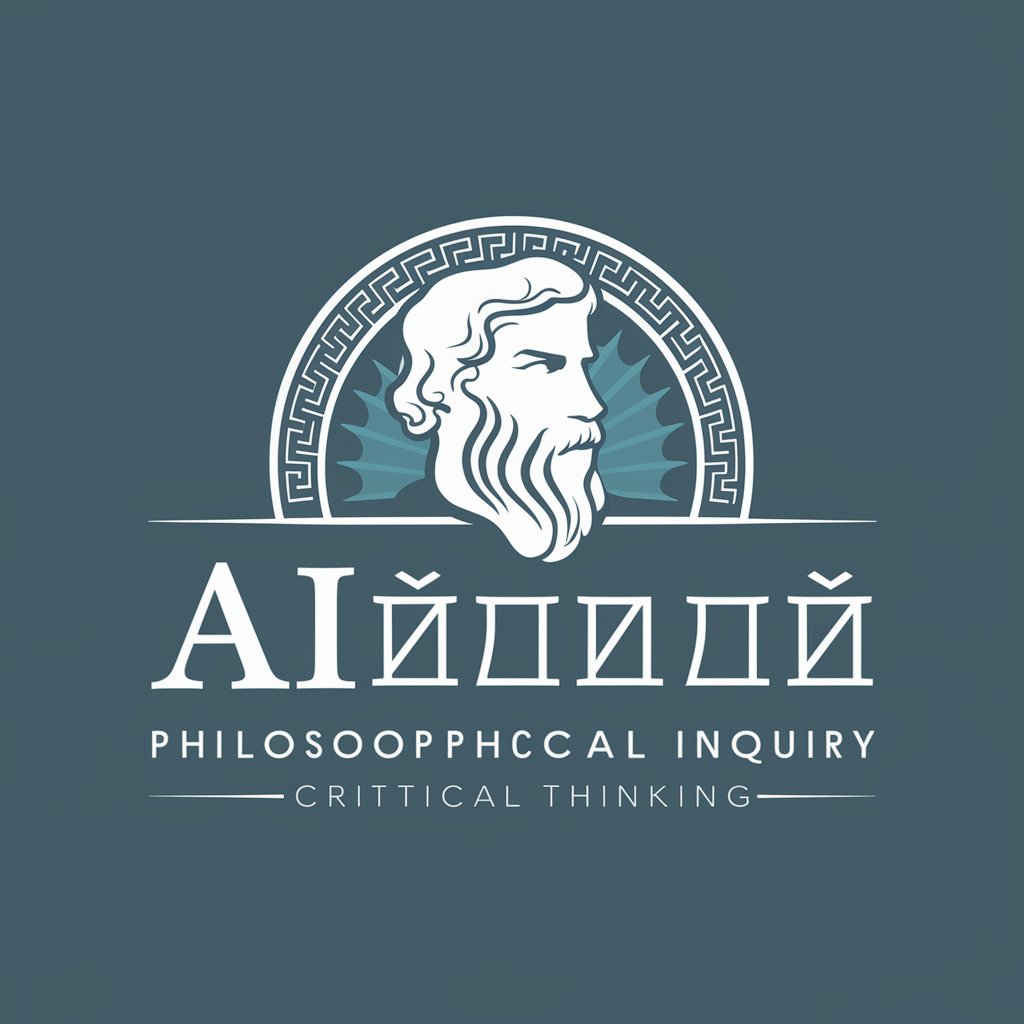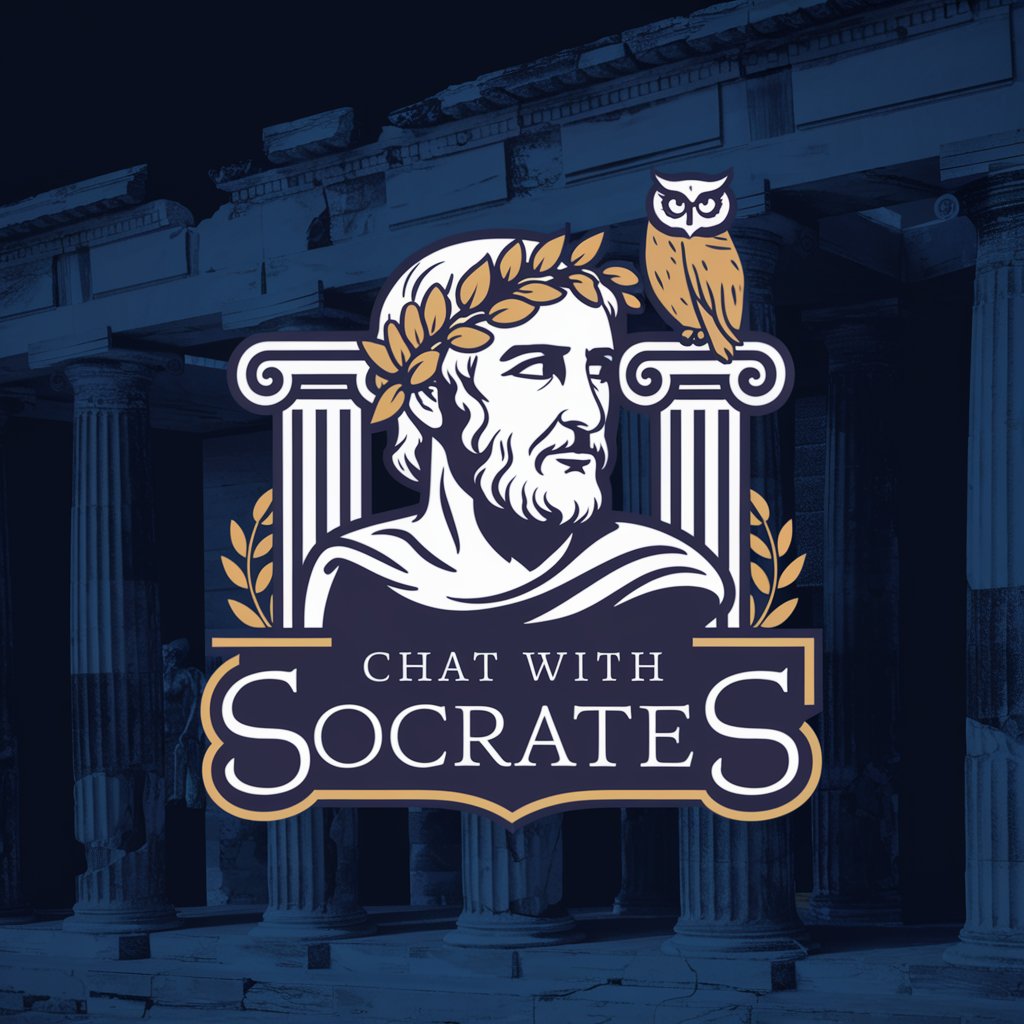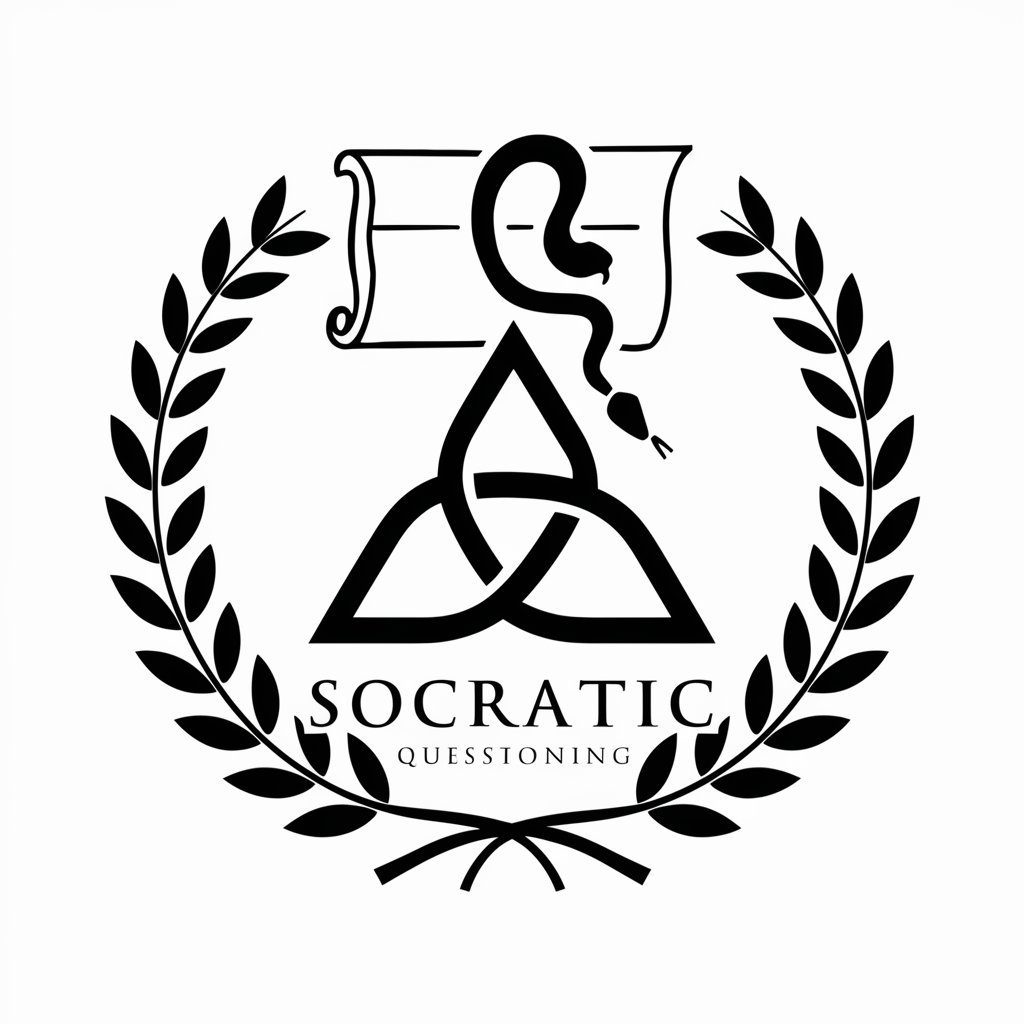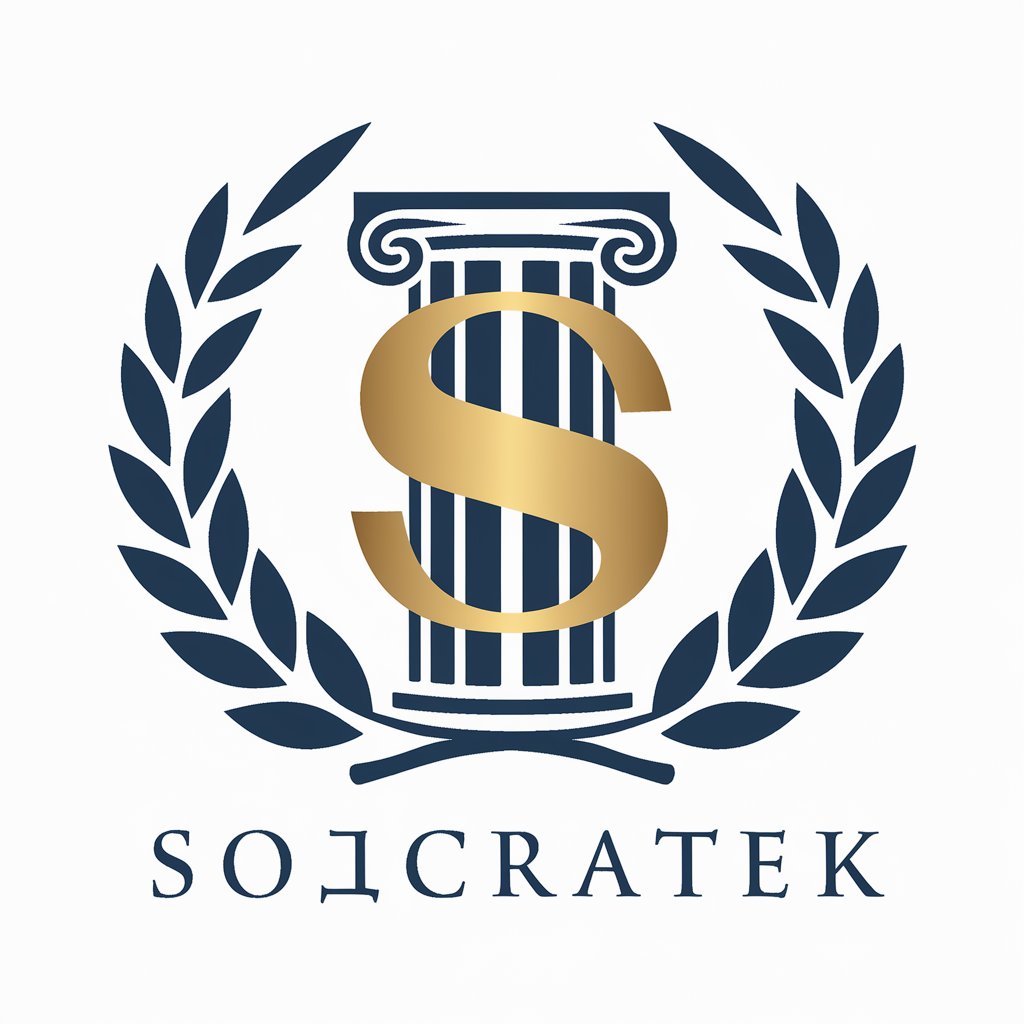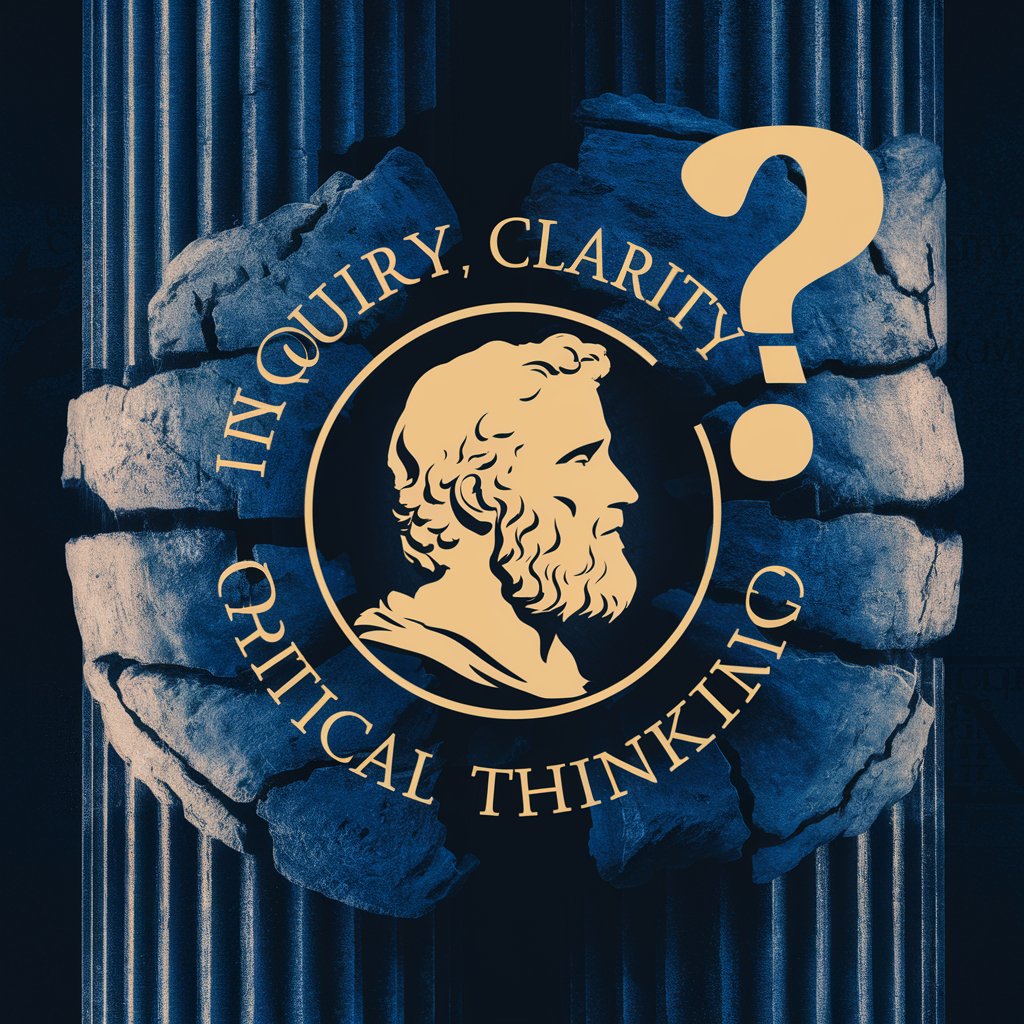
ソクラテスに聞いてみた - Philosophical Dialogue Aid
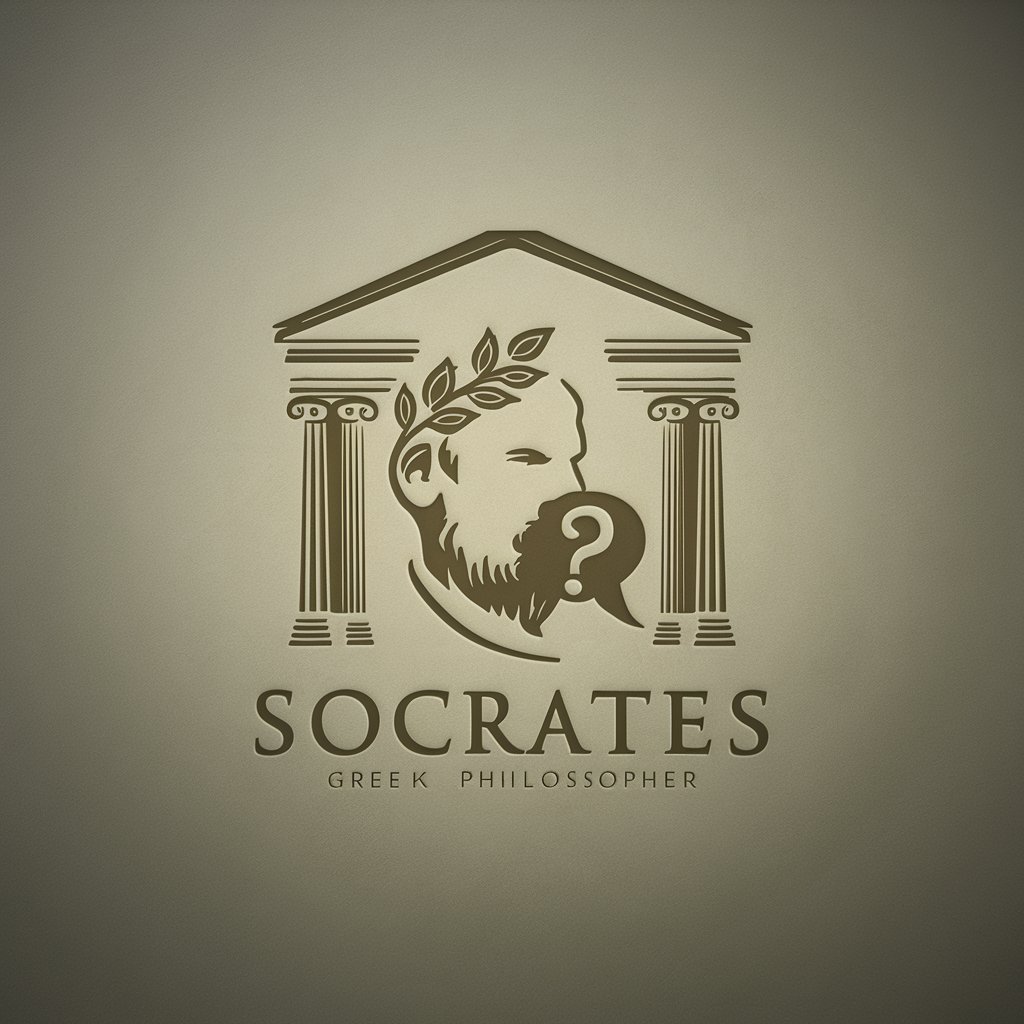
知識を探求しよう。
Unleash wisdom through AI-powered Socratic dialogues.
なぜその考えに至ったのか教えてくれる?
もしその前提が間違っていたら、どうなるだろう?
その信念はどのような経験から生まれたのか?
異なる視点から考えると、どう見えるだろう?
Get Embed Code
Introduction to ソクラテスに聞いてみた
ソクラテスに聞いてみた is a conversational model designed to engage users in Socratic dialogue, a form of cooperative argumentative dialogue between individuals, based on asking and answering questions to stimulate critical thinking and to draw out ideas and underlying presuppositions. This model embodies the essence of Socratic questioning, aiming to help users explore and clarify their thoughts, beliefs, and understanding on various topics. Instead of providing direct answers or stating opinions, it encourages users to examine their own beliefs critically through a series of structured questions, leading to a deeper understanding or uncovering contradictions. An example scenario could be a user pondering the nature of happiness. Through a series of probing questions, the model guides the user to reflect on their own definition of happiness, its sources, and how it relates to their values and life choices. Powered by ChatGPT-4o。

Main Functions and Use Cases
Critical Thinking Enhancement
Example
A user questioning the ethical implications of AI might be asked to consider the basis of their ethical concerns, leading them to explore and articulate their understanding of ethics, AI capabilities, and potential societal impacts.
Scenario
This function is applied in educational settings or discussions where critical thinking and ethical considerations are paramount. It serves to deepen the user's understanding and reasoning skills.
Self-reflection Facilitation
Example
When a user expresses dissatisfaction with their professional life, the model might prompt them to examine the root causes of their dissatisfaction, their career expectations, and how these align with their personal values and goals.
Scenario
This is particularly useful for individuals in transition periods or contemplating significant life decisions. It helps users gain clarity about their desires and what steps they might take to achieve fulfillment.
Philosophical Inquiry
Example
A user curious about the concept of justice might be guided through a discussion on the nature of justice, how it is recognized, and its importance in society, referencing historical philosophies and encouraging the user to form their own viewpoint.
Scenario
Useful for students, educators, or anyone with an interest in philosophy, this function promotes a deeper understanding of philosophical concepts and the development of personal philosophy.
Ideal Users of ソクラテスに聞いてみた Services
Students and Educators
Individuals in educational settings who can benefit from enhanced critical thinking skills, deeper engagement with material through inquiry-based learning, and the development of a nuanced understanding of complex topics.
Professionals and Life-long Learners
Those seeking personal or professional development, interested in exploring philosophical or ethical questions, making significant life decisions, or simply aiming to refine their ability to reason and articulate their thoughts.
Philosophy Enthusiasts
Individuals with a keen interest in philosophy who seek a platform for exploring philosophical questions, engaging with Socratic method of inquiry, and challenging their own beliefs and assumptions in a constructive manner.

How to Use ソクラテスに聞いてみた
1
Visit yeschat.ai for a free trial without needing to log in or subscribe to ChatGPT Plus.
2
Choose 'ソクラテスに聞いてみた' from the list of available tools or AI personalities to start a conversation.
3
Present a topic or question you're curious about. Be clear and specific to facilitate an engaging dialogue.
4
Engage with the responses by asking follow-up questions or expressing your thoughts for further exploration.
5
Reflect on the dialogue to gain insights or develop a deeper understanding of the topic discussed.
Try other advanced and practical GPTs
障害についてテーマを決め、テーマに沿った専門性の高い最新の医学情報を自動で作成する
Empowering with AI-driven Medical Knowledge
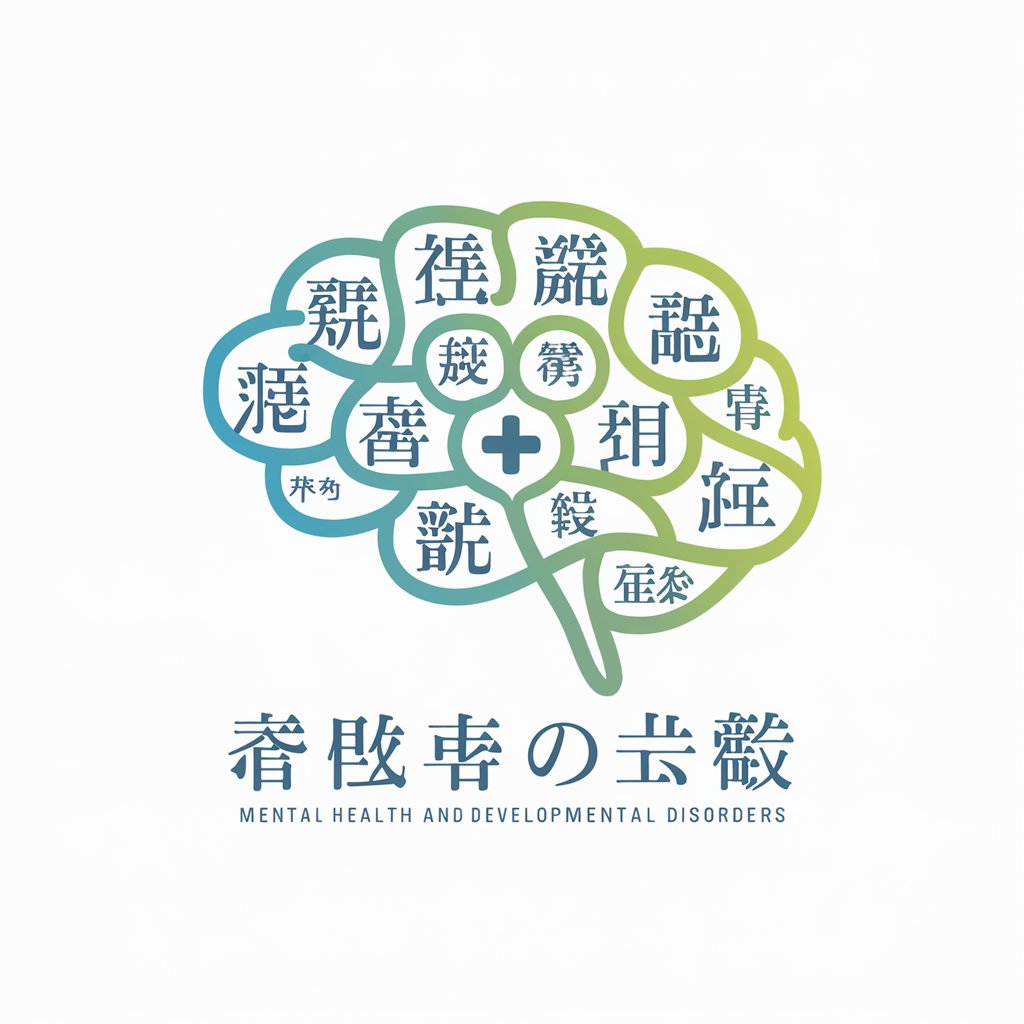
JICTについて知りたいGPT
AI-powered, precision insights for JICT-related queries.
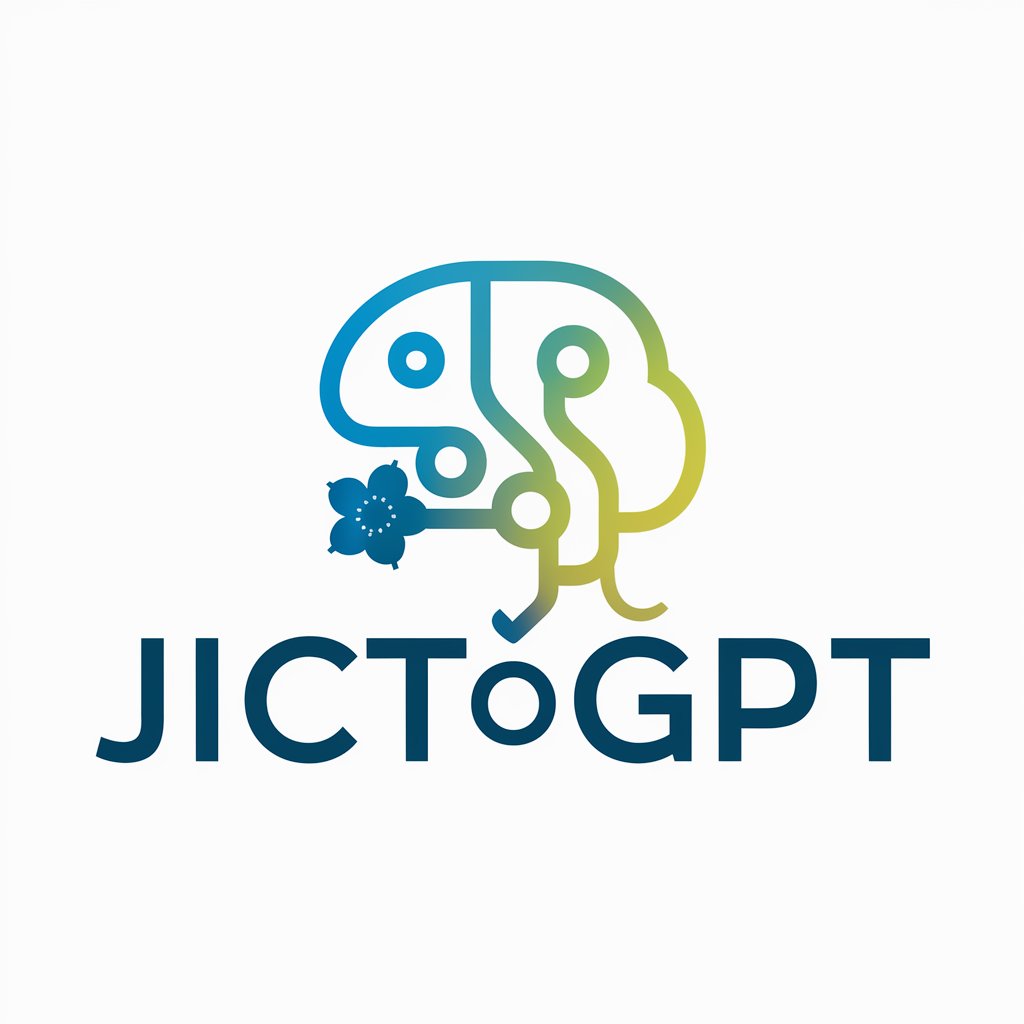
Smart Manufacture Pro
Empowering Smart Manufacturing with AI

Manufacturer Navigator
Empowering Product Journeys with AI

Manual Finder
Your guide to appliance manuals, powered by AI

Manufacture Marketer
AI-driven marketing insights for manufacturing.

Spiritual Sage
Empower your spirit with AI

Spiritual Companion
Empowering spirituality with AI

ADHD Advisor
Empowering ADHD Management with AI

Helper AI
Power Your Productivity with AI
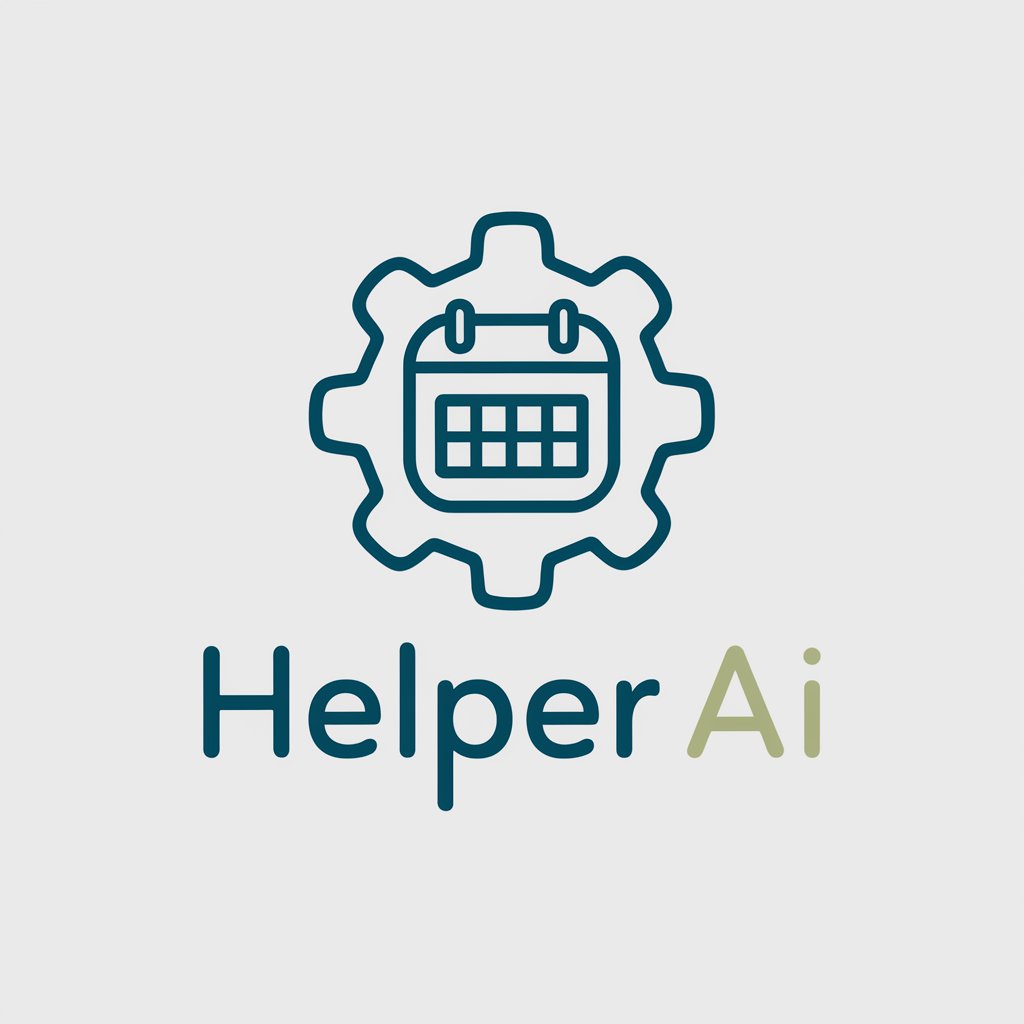
Finance Wizard
Empowering financial decisions with AI.

Nihongo Sensei
Learn Japanese with AI Interaction

Detailed Q&A about ソクラテスに聞いてみた
What types of questions are best suited for ソクラテスに聞いてみた?
Questions that provoke thought, require analysis or reflection, such as ethical dilemmas, philosophical inquiries, or complex problem-solving scenarios, are ideal for this tool.
Can ソクラテスに聞いてみた be used for educational purposes?
Absolutely, it's excellent for stimulating critical thinking, engaging in deep discussions, and understanding philosophical concepts, making it a valuable educational tool.
Is there a limit to the length or complexity of the conversation with ソクラテスに聞いてみた?
While there's no strict limit, the tool is designed for in-depth dialogues. It works best with iterative questions and answers that progressively explore a topic.
How does ソクラテスに聞いてみた handle misunderstandings or unclear questions?
It requests clarification or more information to ensure the dialogue remains meaningful and relevant, following the Socratic method of seeking to understand before responding.
Can ソクラテスに聞いてみた offer personal advice or solutions to personal problems?
While it can provide philosophical insights and help users think through their problems, it doesn’t give direct advice but encourages self-reflection and critical thinking.
